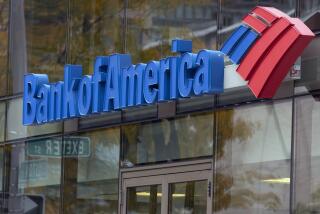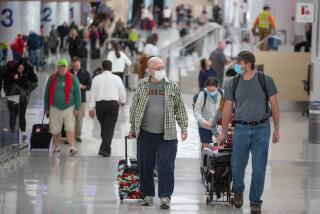Many websites disrupted by outage at San Francisco cloud company Fastly

- Share via
LONDON — Multiple websites went offline briefly across the globe Tuesday after an apparent outage at the San Francisco-based cloud service company Fastly, revealing how crucial a handful of companies running the internet’s plumbing have become.
Dozens of high-traffic websites, including the New York Times, CNN, Twitch, the Guardian and the British government’s home page, could not be reached.
In Asia, cities such as Hong Kong and Singapore were also affected, with users unable to access the CNN website. In China, where most foreign media websites are blocked, there was little discussion on the outage on social media platforms such as Weibo.
Fastly acknowledged a problem just before 3 a.m. Pacific time. It said in repeated updates on its website that it was “continuing to investigate the issue.”
About an hour later, the company said: “The issue has been identified and a fix has been applied. Customers may experience increased origin load as global services return.” A number of sites that were hit early appeared to be coming back online.
Fastly said it had identified a service configuration that triggered disruptions, meaning the outage appeared to be caused internally.
Many people back at work in the new year are running into a messaging obstacle as the widely used Slack platform experiences a global outage.
Still, all major futures markets in the U.S. fell sharply minutes after the outage hit almost exactly a month after a cyberattack that caused the operator of the largest fuel pipeline in the U.S. to halt its operations.
There was no indication early Tuesday, however, that the outage was an attack.
Internet traffic measurement by Kentik shows that Fastly began to recover from the outage roughly an hour after it struck at midmorning European time — and before most Americans were awake.
“Looks like it is slowly coming back,” said Doug Madory, an internet infrastructure expert at Kentik. He said it was a serious incident “because Fastly is one of the world’s biggest CDNs” — content delivery networks — “and this was a global outage.”
The U.S. government recovered millions of dollars in Bitcoin paid by Colonial Pipeline to ransomware hackers who locked up its computer system last month.
As a content-delivery network, Fastly provides vital but behind-the-scenes cloud-computing “edge servers” to many of the web’s popular sites. These servers store, or “cache,” content such as images and video in places around the world so that they are closer to users, who can fetch the content more quickly and smoothly instead of having to access the site’s original server. Fastly says its services mean that a European user going to an American website can get the content from 200 to 500 milliseconds faster.
The impact of Fastly’s trouble highlights the relative fragility of the internet’s current architecture, given its heavy reliance on Big Tech companies — such as Amazon’s AWS cloud services — as opposed to a more decentralized model.
“Even the biggest and most sophisticated companies experience outages. But they can also recover fairly quickly,” Madory said.
When the outage hit, some visitors trying to access CNN.com got a message that said: “Fastly error: unknown domain: cnn.com.” Attempts to access the Financial Times website turned up a similar message while visits to the New York Times and the British government’s gov.uk site returned an “Error 503 Service Unavailable” message, along with the line “Varnish cache server,” which is a technology that Fastly is built on.
More to Read
Sign up for Essential California
The most important California stories and recommendations in your inbox every morning.
You may occasionally receive promotional content from the Los Angeles Times.












